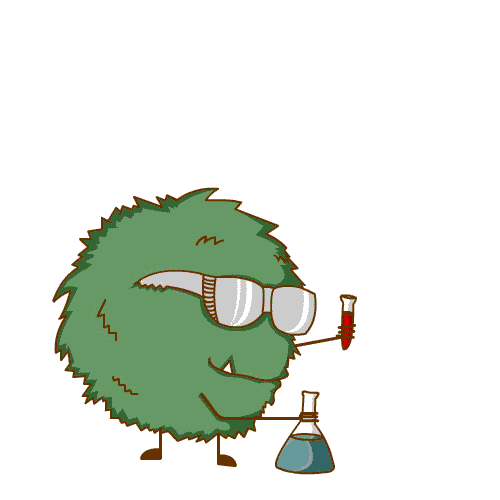
This is a sequel to “Stranded”. You don’t need to read the other series before starting this one, but you’ll have more fun and a more complete story if you do.
Click here for Part 1, Part 2, Part 3, Part 4, Part 5, Part 6, Part 7
Earth hasn’t been visible for a few days now. On one hand, I’m really glad to have left this hellish planet behind me, on the other I’m sad that I had to leave my friend there. But the excitement to be home soon is almost able to cancel out the sadness.
Almost.
I’m standing on the bridge of the ship that has come to pick me up and watch the stars fly by. Not literally of course. Information about our surroundings is collected and displayed on big screens. There are windows but they’re blocked with thick shields which are only opened in case of an emergency.
Everyone is calm, we haven’t run into any Splerions on our way yet. It’s unlikely that it is still going to happen as we already entered protected space.
After the declaration of war from the Splerions had arrived, security measures had been put in place. As Splerions are a race with insectoid characteristics, science teams had devised a mechanism to disrupt their perception.
Regular cloaking technology didn’t work and it took a while until we had figured out why it didn’t work. Splerions didn’t rely on their sight like humans or hearing like us. No, Splerions smell things.
At first, nobody wanted to believe it. There is no atmosphere in space and for a smell to be detected, there would need to be a lot of molecules. And even then, they would disperse quickly. But the Splerions seemed to have evolved in a direction that allowed them to detect the tiniest amount of pheromones or other chemical substances. @suesa
Their spaceships are equipped with sophisticated sensors, based on their own sensory organs. One single molecule is enough to trigger a response in the “antennas” attached to their spaceships.
But the advanced technology has one big flaw: It is too close to a biological system. And biological systems are frail things that can easily be broken with the right chemicals. So we produced the right chemicals.
To be precise, we produced pheromones. Millions, billions of liters of it. Those pheromones were placed in dispersion systems located on nearby planets. The constant stream of highly potent chemicals confuses the Splerion’s systems so much that they tend to crash into the planets, sometimes even into each other.
That’s not our only line of defense though.
Each spaceship is equipped with chemicals that mimic the form of the signals the Splerions are following but don’t separate from the sensors, effectively clogging them. No other chemicals can be detected from thereon and the Splerions are basically blind.
It’s almost impossible for them to find our ships. It’s completely impossible to follow.
As long as the ship is equipped with these chemicals. My science vessel was not, that’s how they got us. But this ship I’m on now? State of the art. Not older than a few months. And it’s so fast!
Excitement floods my body as I recognize the familiar signals that indicate we’re approaching my home planet’s orbit. Almost home! Finally!
I can see the captain smile. My wings slightly quiver in anticipation. I will soon be able to fly again. Stretch my wings out far …
The blaring alarm interrupts my blissful thoughts. I stare at the captain, wide-eyed.
”What is going on?!”, I ask. ”Do we have a breach?”
”No”, the captain’s voice isn’t more than a whisper. ”That’s not the breach alarm. That’s the alarm for when we’re being attacked.”
”Attacked? By whom? How? Why didn’t we see them earlier?”
”It seems like they knew our sensor range and stayed out of it just far enough. It’s the Splerions.”
”How? How were they able to follow us?”
”I don’t know”, the captain says, panic in his voice. ”I don’t …” He stops. His skin takes on an unhealthy light-blue color. ”Oh no”, he says. ”Oh please, no.”
”What? What is it?”
”The humans”, the captain said. ”They sabotaged our chemical cloaking mechanism.”
”They did what?”, I shriek. ”Why would they do this? How did they do this?”
”You remember that human inspecting the ship to make sure no germs from their planet would be transported by us?”
”Yes?”
”He also checked the chemical tank.”
”And you didn’t confirm if everything is alright before we started?”
A headshake from the captain.
”I didn’t think … I didn’t expect … “
”What exactly did they do?” I ask.
”They switched the chemicals. We have been spreading pheromones the whole time. Pheromones stronger than the ones we’ve been dispersing to confuse the Splerions. They just needed to follow our unique chemical signature to avoid the protective belt.”
”So you’re saying the humans knew exactly what they were doing?”
”I’m afraid so”, the captain replies. ”The humans seem to have planned the whole thing. They’re working with the Splerions.”
References:
What Does Space Smell Like? NASA Astronauts Describe Cosmic Scent
Exposing Insects' Sense Of Smell
Pheromones and General Odor Perception in Insects
Scientists block insects' sense of smell to protect crops
Picture taken from pixabay.com
Thank you @zycr22 for brainstorming with me and giving me ideas to continue this story with!
Got a scientific topic which you want to see as a story? Leave me a comment!
You want to support scientists on Steemit? You are a scientist on Steemit? Join the #steemSTEM channel on steemit.chat and connect with us!
STEM is an acronym for Science, Technology, Engineering and Math

